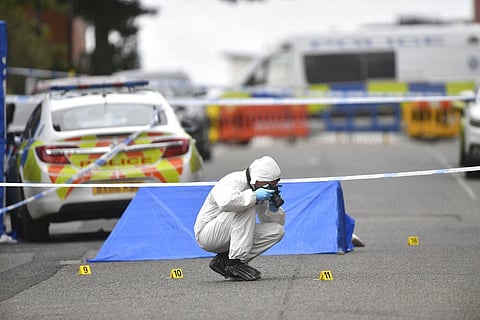

BENGALURU: Karnataka police have made it mandatory to use forensic services tools in the investigation of heinous cases attracting punishment of seven and more years in all six commissionerates, to begin with. “We propose to extend the facility to the rest of the state by the end of 2023. The push to use forensic expertise in the investigation of heinous cases, which attract punishment of seven years and more, has come from the Ministry of Home Affairs (MHA),” said Director General and Inspector General of Police (DG&IGP) Praveen Sood.
The Central government had last year directed all states and Union Territories to mandatorily use forensic applications in the investigation of heinous crimes against women and children; offences under the Protection of Children from Sexual Offences (POCSO) Act; murder, attempt to murder, culpable homicide, acid attack, grievous hurt, outraging the modesty of women, rape, gang rape, robbery, dacoity; offences under the Arms Act, serious road accidents etc. Karnataka police are second in line after Delhi Police to use forensic services for the detection of heinous crimes.
A circular from the DG&IGP’s office was issued in November last year, following directives from the Ministry of Home Affairs (MHA). “To achieve the goal, the Directorate of Forensic Science Laboratory (DFSL), Bengaluru, has procured 13 mobile FSLs. They will be stationed at the six commissionerates. These MFSLs will be equipped with 16 critical forensic kits. Additionally, the scene of crime officers (SOCO) will be deployed in all the units. They are currently undergoing training at the National Forensic Science University (NFSU) at Gandhinagar,” added Sood.
The police chief’s circular stated that in all six commissionerates -- Bengaluru, Mysuru, Hubballi-Dharwad, Mangaluru, Belagavi and Kalaburagi -- it will henceforth be mandatory for investigating officers (IOs) to summon and utilise forensic experts at the scene of a heinous crime.
“It is incumbent upon the investigating officer to summon for MFSL at the time of registration of the criminal case, where he feels the punishment is seven years and more. He will have to send a request to the deputy director of the regional FSL. IOs, other than the commissionerates, can also make similar requisitions from the nearest RFSL/SFSL. The IO, after collecting seized samples with the help of forensic experts, will make the seizure memo and deposit them with the police station concerned, to be sent to RFSL/SFSL within the next 15 days, and the same will be recorded in the case diary,” read the DG&IGP’s circular.
Karnataka police have enhanced their capability in forensic investigation over the last few years. “The pendency (in forensic reports) has been drastically reduced in 11 of 14 forensic disciplines. In three areas -- DNA, cyber and audio-visual -- the waiting period has come down from three years to seven months. We are working towards further reducing it to one month. The state FSL was earlier handling 20,000 cases per year, which has gone up to 30,000 cases per year.
By the end of 2023, we hope to increase our capacity to deliver 50,000 reports in one year. We also plan to open two more FSLs, at Shivamogga and Tumakaru, which will be dedicated exclusively to DNA, cyber, audio and visual. We also propose to have 40 MFSLs in Karnataka by the end of this year,” added the police chief.